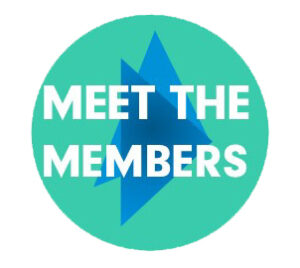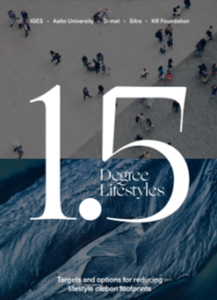 Hot or Cool Institute is a public interest think tank that explores the intersection between society and sustainability, we bring together researchers and practitioners to facilitate solutions to global problems. This collaboration equips communities, organisations, and policy makers with science to inform their decisions towards a sustainable and prosperous future.
Hot or Cool Institute is a public interest think tank that explores the intersection between society and sustainability, we bring together researchers and practitioners to facilitate solutions to global problems. This collaboration equips communities, organisations, and policy makers with science to inform their decisions towards a sustainable and prosperous future.
Why did you join Rapid Transition Alliance?
The urgency and scale of the sustainability challenge is not matched by the current pace of change. In addition to our scientific collaborations, Hot or Cool aims at making more use of communication to bridge gaps between people, policy processes and science. We admire Rapid Transition Alliance for their empowering and clear communication. Findings from our research and policy engagement could inform the work of the Alliance’s members, just as we could benefit from the outreach activities of fellow members. Collaboration is important to reach our shared visions and goals.
What for you is the biggest challenge of rapid transition?
The challenge of imagining alternative futures – undoing centuries of the constructed narrative that material accumulation is at the centre of societal development and individual success. This narrative is epitomised by corporate culture and consumerism, fighting against a (rapid) transition.
What is your organisation doing to encourage rapid transition?

We developed the 1.5-degree lifestyles approach and produced a report that outlines the targets and options for reducing lifestyle carbon footprint. We are working with other researchers and decision makers to foster this level of ambition in the design of research and policy interventions. We have also just launched our engagement approach called Difficult Conversations: Empowering Solutions in which we pull together the science on challenging issues, take a political economy approach to map the power dynamics and identify what makes change difficult, and identify pathways out of the reigning paradigm – including piloting experiments with high-return potential.
What is your favourite example of rapid transition?
One outstanding example of rapid transition is the wide acceptance of not smoking in public spaces. It shows that changes in prevailing cultural and psychological perspectives are key to not only finding, but also accepting alternative directions into the future. This needs to be complemented with dismantling the architecture of consumerism and finding better alternatives.
What one thing would best help the task of rapid transition?
One thing that would enable rapid change, connecting with the previous point on prevalence of corporatisation and consumerism, would be to link most taxes and prices to sustainability impacts and collective well being. Any corporate activities, policies, or consumption that are neither sustainable nor contribute to well being are at best squandering opportunities for a better future.
